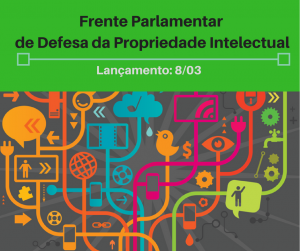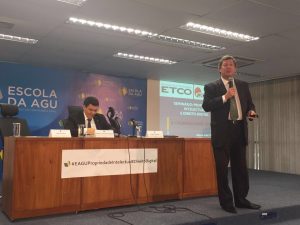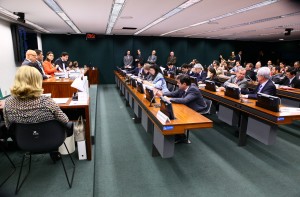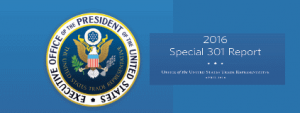 The Mixed Parliamentary Front in Defense of Intellectual Property and Combating Piracy will be installed in the Chamber of Deputies on March 8. Congressman Fernando Francischini (SD-PR) will be the front president and will open the launch event. Vice-presidents Sandro Alex (PSD-PR) and Eros Biondini (PROS-MG), the presidents of the Brazilian Intellectual Property Association (ABPI), Maria Carmen de Souza Brito; Edson Vismona, from the Brazilian Institute of Ethics in Competition (ETCO), and the director general of the Motion Picture Association - Latin America, Ricardo Castanheira, will also speak at the event.
The Mixed Parliamentary Front in Defense of Intellectual Property and Combating Piracy will be installed in the Chamber of Deputies on March 8. Congressman Fernando Francischini (SD-PR) will be the front president and will open the launch event. Vice-presidents Sandro Alex (PSD-PR) and Eros Biondini (PROS-MG), the presidents of the Brazilian Intellectual Property Association (ABPI), Maria Carmen de Souza Brito; Edson Vismona, from the Brazilian Institute of Ethics in Competition (ETCO), and the director general of the Motion Picture Association - Latin America, Ricardo Castanheira, will also speak at the event.
In all, 37 sector entities support the initiative. During the installation of the front, the sectorial entities will launch a new digital platform to foster innovation - CriAtivaRede. With a presence on Facebook, Instagram and Twitter, the network has the mission of spreading the importance of intellectual property to the general public, addressing issues that involve the entire creative industry in the country. In its beta version, CriAtivaRede has already reached 25 thousand followers.
The front will start work with a defined legislative agenda, which contains a list of the first 12 projects to be closely monitored by the group.
FPM legislative agenda
From the audiovisual sector, they support the front:
ABRAPLEX - Brazilian Association of Cinematographic Exhibiting Companies Multiplex Operators
ABTA - Brazilian Pay-TV Association
ALIANZA - Alianza against Piratería de Televisión Paga
APRO - Brazilian Association for the Production of Audiovisual Works
BRAVI - Brasil Independent Audiovisual
DBCA - Brazilian Cinema and Audiovisual Directors
MPA - Motion Picture Association - Latin America
SICAV - Union of the Audiovisual Industry
TAP - Television Association of Programmers
UBV & G - Brazilian Video and Games Union
The creation of the parliamentary front has the support of other entities, associations and companies:
ABAPI - Brazilian Association of Industrial Property Agents
ABDR - Brazilian Association of Reprographic Law
ABES - Brazilian Association of Software Companies
ABIFUMO - Brazilian Tobacco Industry Association
ABIHPEC - Brazilian Association of the Personal Hygiene, Perfumery and Cosmetics Industry
ABIT - Brazilian Association of the Textile and Clothing Industry
ABIVIDRO - Brazilian Technical Association of Automatic Glass Industries
ABPD - Brazilian Association of Record Producers
ABPI - Brazilian Association of Intellectual Property
ABRAL - Brazilian Licensing Association
AgroBio - Association of Biotechnology Companies in Agriculture and Agribusiness
ÁPICE - Association for Sports Industry and Trade
Bayer
BPG - Brand Protection Group
BRASSCOM - Brazilian Association of Information and Communication Technology Companies
CBL - Brazilian Book Chamber
CNF - National Confederation of Financial Institutions
CNI - National Confederation of Industry
ETCO - Brazilian Institute of Competitive Ethics
FNCP - National Forum Against Piracy and Illegality
GS1 Brasil - Brazilian Automation Association
Brazil Legal Institute
Intellectual Capital Institute
Open Word Institute
SYNGENT
UBC - Brazilian Union of Composers
UBEM - Brazilian Union of Music Publishers









